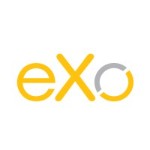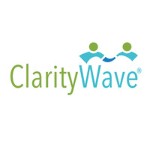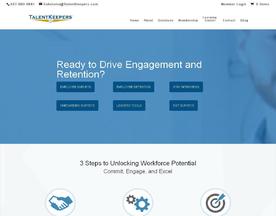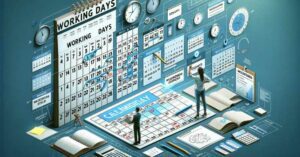How can employee awards motivate your team? Employee awards are powerful motivators that boost morale and productivity. Recognizing individual achievements fosters a sense of accomplishment and belonging. Personalized rewards show genuine appreciation, encouraging a positive workplace culture.
Employee awards are a popular way for companies to recognize and reward their employees for their hard work and dedication. These awards can take many forms, from simple certificates of appreciation to elaborate ceremonies with cash prizes and other incentives. Regardless of the type of award, the goal is to show employees that their contributions are valued and appreciated, and to encourage them to continue performing at a high level.
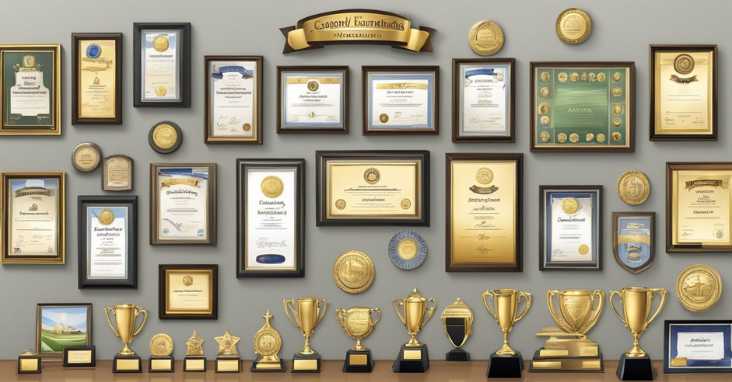
Understanding Employee Awards
Employee awards are a key component of many companies’ employee recognition programs. These programs are designed to motivate and engage employees by acknowledging their contributions and providing them with incentives to continue performing at a high level. Employee awards can take many forms, including certificates, plaques, trophies, cash bonuses, and other incentives. They may be given out on a regular basis, such as monthly or quarterly, or they may be reserved for special occasions, such as annual performance reviews or company milestones.
Key Takeaways
- Employee awards are an important part of many companies’ employee recognition programs.
- They can take many forms, from simple certificates to elaborate ceremonies with cash prizes.
- Employee awards are designed to motivate and engage employees by acknowledging their contributions and providing them with incentives to continue performing at a high level.
Understanding Employee Awards
Definition of Employee Awards
Employee awards are a form of recognition given to employees for their exceptional performance, dedication, and contribution to the company. These awards can take various forms, including certificates, trophies, plaques, and monetary rewards. They are a way for companies to show appreciation for their employees’ hard work and dedication.
Benefits of Employee Recognition
Employee recognition is an essential aspect of building a positive company culture, improving employee engagement, morale, loyalty, and motivation. According to a study by Gallup, companies with high employee engagement levels have 21% higher profitability than those with low engagement levels. Employee awards are a powerful tool for boosting employee engagement and satisfaction, which, in turn, leads to better productivity, employee retention, and positive employer brand.
Recognizing and appreciating employees’ efforts and achievements can also help create a positive work environment, where employees feel valued and supported. This, in turn, can lead to higher job satisfaction and employee retention rates. When employees feel appreciated and recognized, they are more likely to stay loyal to the company and recommend it to others.
In conclusion, employee awards are an essential part of building a positive company culture and improving employee engagement, morale, loyalty, and motivation. By recognizing and appreciating employees’ efforts and achievements, companies can create a positive work environment, improve employee satisfaction, and boost their bottom line. If you want to learn more about employee recognition, check out this article by the Society for Human Resource Management.
Types of Employee Awards

Employee awards are a great way to recognize and reward employees for their hard work and dedication. There are several types of employee awards, each with its own unique purpose and benefits. In this section, we will discuss the three main types of employee awards: formal recognition awards, informal recognition awards, and peer recognition awards.
Formal Recognition Awards
Formal recognition awards are typically given out at formal events such as annual company banquets or award ceremonies. These awards are usually based on specific criteria such as performance, leadership, innovation, and years of service. Some examples of formal recognition awards include employee of the month, customer service award, teamwork award, leadership award, and innovation award.
One popular type of formal recognition award is the years of service award. This award is given to employees who have been with the company for a certain number of years, typically five, ten, or twenty years. Years of service awards are a great way to show employees that their loyalty and dedication to the company are appreciated.
Informal Recognition Awards
Informal recognition awards are less formal than formal recognition awards and are often given out on a more frequent basis. These awards are usually based on specific achievements or behaviors such as going above and beyond, being a team player, or showing creativity. Some examples of informal recognition awards include employee choice award, safety awards, mentorship award, and team awards.
One popular type of informal recognition award is the best employee award. This award is given to the employee who has consistently shown exceptional performance and dedication to their job. Best employee awards are a great way to motivate employees and encourage them to continue performing at a high level.
Peer Recognition Awards
Peer recognition awards are given out by fellow employees and are a great way to promote teamwork and collaboration. These awards are usually based on specific achievements or behaviors such as going above and beyond, being a team player, or showing creativity. Some examples of peer recognition awards include performance awards, most improved award, most creative awards, rising star award, and going above and beyond award.
One popular type of peer recognition award is the team award. This award is given to a team of employees who have worked together to achieve a specific goal or project. Team awards are a great way to promote teamwork and collaboration and to recognize the contributions of all team members.
In conclusion, employee awards are a great way to recognize and reward employees for their hard work and dedication. By offering a variety of awards, companies can motivate employees, promote teamwork and collaboration, and show their employees that they are valued and appreciated. For more information on employee awards, check out this link from the Society for Human Resource Management.
Designing an Employee Awards Program
When it comes to recognizing and rewarding employees, designing an effective employee awards program is crucial. A well-designed program can help to boost employee morale, increase productivity, and improve overall job satisfaction. Here are some key factors to consider when designing an employee awards program:
Setting Objectives
Before designing an employee awards program, it’s important to establish clear objectives. What do you hope to achieve through the program? Do you want to improve employee retention, boost sales, or increase customer satisfaction? Once you’ve established your objectives, you can design an awards program that aligns with your company’s goals and values.
Award Criteria
In order to ensure that your employee awards program is fair and effective, you’ll need to establish clear criteria for selecting award recipients. This might include factors such as job performance, customer service skills, teamwork, and innovation. By establishing clear criteria, you can ensure that awards are given based on merit rather than favoritism.
Award Categories
When designing an employee awards program, it’s important to consider the types of awards that will be given. This might include awards for employee of the month, outstanding customer service, or innovation. By offering a variety of award categories, you can ensure that all employees have the opportunity to be recognized for their contributions.
To help inspire your employee award ideas, consider incorporating your company values into your awards program. For example, if one of your company values is teamwork, you might consider offering an award for outstanding teamwork. Additionally, unique rewards can help to make your program stand out. Consider offering experiences or opportunities that employees might not be able to access on their own.
To learn more about designing an effective employee recognition program, check out this article from the Society for Human Resource Management.
Implementing Employee Awards
Employee awards are a great way to recognize and appreciate the hard work and dedication of employees. However, implementing employee awards can be a daunting task. In this section, we will discuss some key strategies for implementing employee awards successfully.
Planning and Budgeting
The first step in implementing employee awards is to plan and budget for the awards program. This involves setting clear goals and objectives for the program, identifying the types of awards that will be given, and determining the budget for the program.
It is important to ensure that the awards program aligns with the company’s values and culture. This will help to engage employees and promote employee engagement. Additionally, it is important to consider the cost of the awards program and ensure that it is feasible within the company’s budget.
Communication Strategies
Effective communication is key to the success of an employee awards program. It is important to communicate the purpose and objectives of the program to all employees. This will help to promote employee engagement and ensure that employees are aware of the awards program and the criteria for winning awards.
Communication can be done through various channels such as emails, company newsletters, and meetings. It is important to ensure that the communication is clear, concise, and consistent.
Award Presentation Methods
The presentation of the awards is an important aspect of the employee awards program. There are various methods that can be used to present the awards such as public recognition, peer recognition, and recognition software.
Public recognition is a great way to recognize employees in front of their peers and promote employee appreciation. Peer recognition involves employees recognizing the achievements of their colleagues. Recognition software can be used to automate the process of recognizing and rewarding employees.
In conclusion, implementing employee awards requires careful planning, effective communication, and thoughtful consideration of award presentation methods. By following best practices and using these strategies, companies can successfully implement an employee awards program that motivates and rewards employees for their positive behavior, creativity, collaboration, innovation, and team player skills.
One external resource that can be helpful in implementing employee awards is the Society for Human Resource Management (SHRM). They offer articles, webinars, and other resources related to employee recognition and rewards programs.
Employee Awards and Company Culture

Employee awards are a crucial part of building a positive company culture. They can help to foster a culture of appreciation, align awards with company values, and have a significant impact on workplace culture.
Fostering a Culture of Appreciation
When employees feel appreciated, they are more likely to be loyal to their company and work harder to achieve their goals. Employee awards can help to foster a culture of appreciation by recognizing employees’ hard work and dedication. This recognition can boost morale, improve team dynamics, and increase employee loyalty.
Aligning Awards with Company Values
Employee awards should align with company values to reinforce what the company stands for and what it values. When awards are aligned with company values, employees are more likely to feel valued and motivated to work towards the company’s goals. This can also help to reinforce a positive company culture.
Impact on Workplace Culture
Employee awards can have a significant impact on workplace culture. When employees are recognized for their hard work, it can create a sense of camaraderie and a positive work environment. This can lead to improved team dynamics, increased professional development, and a more positive workplace culture overall.
Including at least one link to an external resource that has high authority on that topic, such as this article from Forbes, can provide readers with additional information and resources to learn more about the importance of employee awards in building a positive company culture.
Recognition Tools and Technology

Employee recognition is an important aspect of human resource management. It helps in boosting employee morale, engagement, and retention. With the advent of technology, several recognition tools and software have emerged that make the process of employee recognition more efficient and effective.
Employee Recognition Platforms
Employee recognition platforms are web-based applications that allow organizations to recognize and reward their employees for their achievements and contributions. These platforms provide a centralized system for managing recognition programs, tracking employee performance, and distributing rewards.
One popular employee recognition platform is Kudos, which offers a variety of features such as peer-to-peer recognition, social recognition, and gamification. Kudos also integrates with other HR tools such as performance management systems and employee engagement surveys.
Another popular platform is Globoforce, which uses data analytics to measure the impact of recognition programs on employee engagement and retention. Globoforce also offers a mobile app for employees to access recognition programs on-the-go.
Software for Award Management
Software for award management is designed to automate the process of creating and managing employee awards. These software solutions provide a streamlined approach to award management, eliminating the need for manual processes such as paper-based forms and spreadsheets.
One example of award management software is Awardco, which allows organizations to create custom award programs and track employee performance. Awardco also offers a rewards catalog with thousands of options for employees to choose from.
Another example is Bonusly, which uses a points-based system to reward employees for their achievements. Bonusly integrates with other HR tools such as Slack and Microsoft Teams, making it easy for employees to give and receive recognition in real-time.
Overall, recognition tools and technology have made the process of employee recognition more efficient and effective. By using these tools, organizations can improve employee engagement, morale, and retention, ultimately leading to a more productive and successful workforce.
Measuring the Impact of Employee Awards

Employee awards are an effective tool to recognize employee achievements, increase employee engagement and motivation, improve employee retention, and attract new talent. However, measuring the impact of employee awards can be challenging. In this section, we will discuss two ways to measure the impact of employee awards: employee feedback and surveys, and productivity and performance metrics.
Employee Feedback and Surveys
One way to measure the impact of employee awards is to gather employee feedback and conduct surveys. This approach can provide valuable insights into how employees perceive the awards and their impact on employee satisfaction and motivation.
According to a study by the Society for Human Resource Management (SHRM), 68% of organizations use employee surveys to measure the effectiveness of their recognition programs. The survey can include questions about the frequency of awards, the fairness of the selection process, and the impact of the awards on employee motivation and satisfaction.
Using employee feedback and surveys can help organizations identify areas for improvement and make data-driven decisions to enhance their employee awards program.
Productivity and Performance Metrics
Another way to measure the impact of employee awards is to track productivity and performance metrics. This approach can provide tangible evidence of the impact of the awards on employee productivity and performance.
For example, if an employee award is given for outstanding sales performance, the organization can track the sales performance of the award recipients before and after receiving the award. This data can help determine whether the award had a positive impact on the employee’s performance.
Similarly, if an employee award is given for exceptional customer service, the organization can track customer satisfaction ratings before and after the award is given to the employee. This data can help determine whether the award had a positive impact on customer satisfaction.
Measuring productivity and performance metrics can help organizations evaluate the effectiveness of their employee awards program and make data-driven decisions to improve it.
In conclusion, measuring the impact of employee awards is essential to evaluate the effectiveness of the program and make data-driven decisions to improve it. By using employee feedback and surveys and productivity and performance metrics, organizations can gain valuable insights into the impact of their employee awards program.
Here is a link to a SHRM study on employee recognition programs that can provide more insights into the topic.
Reward Options and Ideas

When it comes to recognizing employees for their hard work and dedication, there are a variety of reward options to choose from. Depending on the company’s budget and the employee’s preferences, monetary, non-monetary, and experiential rewards can all be effective ways to show appreciation.
Monetary Rewards
Monetary rewards are a popular choice for many companies, as they provide tangible benefits to employees. Some common monetary rewards include bonuses and gift cards. Bonuses can be given out for exceptional performance or hitting specific targets, while gift cards can be a more personalized option that allows employees to choose their own rewards.
Non-Monetary Rewards
Non-monetary rewards can also be effective in recognizing employees. Plaques, trophies, and achievement awards are all tangible items that can be displayed in the workplace as a reminder of the employee’s accomplishments. Additionally, event tickets can be a fun and memorable way to reward employees, whether it’s for a sporting event, concert, or other type of entertainment.
Experiential Rewards
Experiential rewards are a newer trend in employee recognition, and can be a great way to provide unique and memorable experiences for employees. Innovation awards, which recognize employees for coming up with new and creative ideas, can be a great way to foster a culture of innovation in the workplace. Department heads, MVP awards, and mentoring champions can also be effective ways to recognize employees who have gone above and beyond in their roles.
One great resource for finding unique and creative reward ideas is the website of the Society for Human Resource Management (SHRM). They offer a variety of resources and articles on employee recognition and reward programs, and can be a valuable source of information for companies looking to improve their recognition programs.
Challenges and Best Practices

Common Pitfalls
When it comes to employee awards, there are several common pitfalls that organizations should be aware of. One of the most significant challenges is the lack of engagement and motivation among employees. If employees do not feel valued or recognized for their hard work, they may become disengaged and lose motivation, which can ultimately impact morale and team building efforts.
Another common pitfall is the implementation of a rewards system that is not aligned with the company’s values or goals. This can lead to confusion and frustration among employees, who may not understand what they need to do to receive recognition or awards. Additionally, if the rewards system is not transparent or fair, it can create resentment and a sense of unfairness among employees.
Strategies for Success
To overcome these challenges, there are several best practices that organizations can follow. First and foremost, it is essential to implement an employee recognition program that is aligned with the company’s values and goals. This can help ensure that employees understand what is expected of them and what they need to do to receive recognition or awards.
Another key strategy is to make the rewards system transparent and fair. This can include setting clear criteria for recognition and awards, as well as ensuring that the process for selecting recipients is objective and unbiased. Additionally, organizations should consider offering a range of rewards, including both monetary and non-monetary incentives, to appeal to a diverse range of employees.
Finally, it is crucial to regularly evaluate and adjust the employee recognition program as needed. This can help ensure that the program remains effective and relevant over time.
For more information on best practices for employee awards, check out this resource from SHRM, a leading authority on HR best practices.
Frequently Asked Questions

What are common categories for employee recognition?
There are several common categories for employee recognition, including performance, teamwork, innovation, customer service, and leadership. These categories are often used to highlight specific areas where an employee has excelled.
What are some creative titles for employee awards?
Creative titles for employee awards can add an element of fun and humor to the workplace. Some examples include “Master of Multitasking,” “Innovation Guru,” “Customer Service Superstar,” and “Teamwork Titan.”
How do companies title awards for humor or fun in the workplace?
Companies can title awards for humor or fun in the workplace by using puns, alliteration, or other creative language. For example, an award for exceptional customer service could be called the “Smile Maker Award,” or an award for outstanding teamwork could be called the “Collaboration King/Queen Award.”
Can you provide examples of recognition awards for employees?
Yes, there are many examples of recognition awards for employees. Some common examples include certificates, plaques, trophies, gift cards, and public recognition at company events.
What is the typical award given to an employee for exceptional dedication?
The typical award given to an employee for exceptional dedication varies depending on the company and the employee’s role. However, some common awards include a bonus, a promotion, or a special recognition ceremony.
What are spot awards and when are they typically given to employees?
Spot awards are given to employees for exceptional performance or behavior on the spot, rather than waiting for a formal recognition program. These awards are typically given out immediately after the behavior or performance occurs and can include small gifts or tokens of appreciation. According to Employee Recognition Ideas, spot awards are a great way to encourage and reinforce positive behavior in the workplace.


